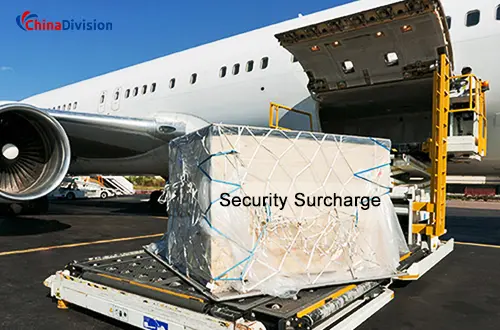A Guide to Avoiding the Air Freight Security Surcharge (SEC)
In international air freight, in addition to the basic freight rate, you may also notice an additional fee called a "Security Surcharge" (SEC or Safety Fee). This fee often confuses many B2B businesses and e-commerce sellers.
Table of Contents
This article will provide a detailed explanation of the air freight security surcharge (SEC) from the perspective of an international freight service provider, answering frequently asked questions and providing an in-depth analysis of the structure and strategies for dealing with this fee.
What is the air freight security surcharge (SEC)?

The security surcharge is a mandatory fee imposed by International Air Transport Association (IATA) member airlines in response to escalating global security threats. It primarily covers the following costs:
Security equipment upgrades
Purchase and maintenance of high-tech equipment such as X-ray scanners and explosive detection systems
Staff training costs
Professional certification and retraining costs for security personnel
Security protocol compliance
Certification fees for complying with security standards of various countries (such as the US TSA and the EU ECAC)
Risk hedge funds
Contingency reserves established by some airlines to address security incidents
These measures not only ensure the safety of cargo during transportation but also meet regulatory compliance requirements for international air transport.
This fee is typically collected by freight forwarders or airlines and shown on freight invoices. It is a common freight surcharge in international shipping, similar to fuel surcharges and currency adjustment fees.
Is the security surcharge fixed or variable?
The fee varies depending on the airline, origin, destination, and airport authorities. It is typically calculated based on the weight or volume of the cargo or as a percentage of the freight rate.
Security fees are typically charged in two ways:
By weight: For example, a fee is charged per kilogram (e.g., $0.15/kg).
By ticket: A fixed fee is charged per shipment (e.g., $25/shipment).
Fees vary slightly between countries and airports. For example, Hong Kong Air Cargo Terminals (Hactl) charges different security screening fees depending on the type of cargo and how it is handled.
Why are security surcharges levied?
Since the September 11, 2001, attacks, global aviation security standards have significantly improved. Governments and international organizations have strengthened their oversight of air cargo security, requiring stricter security measures to be implemented throughout the freight transport chain. While these measures improve security, they also increase operating costs. Security surcharges were created to help transport providers share these necessary security costs.
In-depth User Questions
Is the security surcharge mandatory?
Yes, it is. Almost all international air cargo services charge this fee to cover the costs of compliance and security. Failure to pay this fee may result in shipment failure.
What's the difference between a security surcharge and a fuel surcharge?
A security surcharge covers the cost of safety measures, while a fuel surcharge is designed to mitigate fuel price fluctuations. Both are surcharges, but they serve different purposes.
How can e-commerce sellers estimate this cost?
When booking air freight services, be sure to factor the security surcharge into your total cost estimate. A professional freight forwarder will provide a transparent cost breakdown, helping you accurately predict your final expenses.
Chinadivision's Secure Transportation Solutions
As a professional international freight transportation service provider, Chinadivision is committed to providing efficient, reliable, and cost-effective freight solutions for B2B businesses and e-commerce sellers. We not only help you understand and manage various surcharges, such as security surcharges, but also offer the following services:
Global network coverage
Major air freight routes and high-quality partner resources.
End-to-end services
Including pickup, customs clearance, transportation, and delivery.
Cost optimization
Reducing unit costs through centralized transportation.
Real-time tracking
Visual monitoring throughout the entire process to ensure cargo safety.
Security surcharges are both an inevitable consequence of industry compliance and a breakthrough for companies to optimize their supply chains. By choosing a transparent and professional service provider, businesses can effectively control costs and focus on their core business. By selecting a service provider with a global network and digital capabilities, you can transform this "hidden cost" into a competitive advantage. If you have further questions about air freight security surcharges or other international freight issues, please contact the Chinadivision team. We will provide customized solutions to help you easily meet global supply chain challenges!





